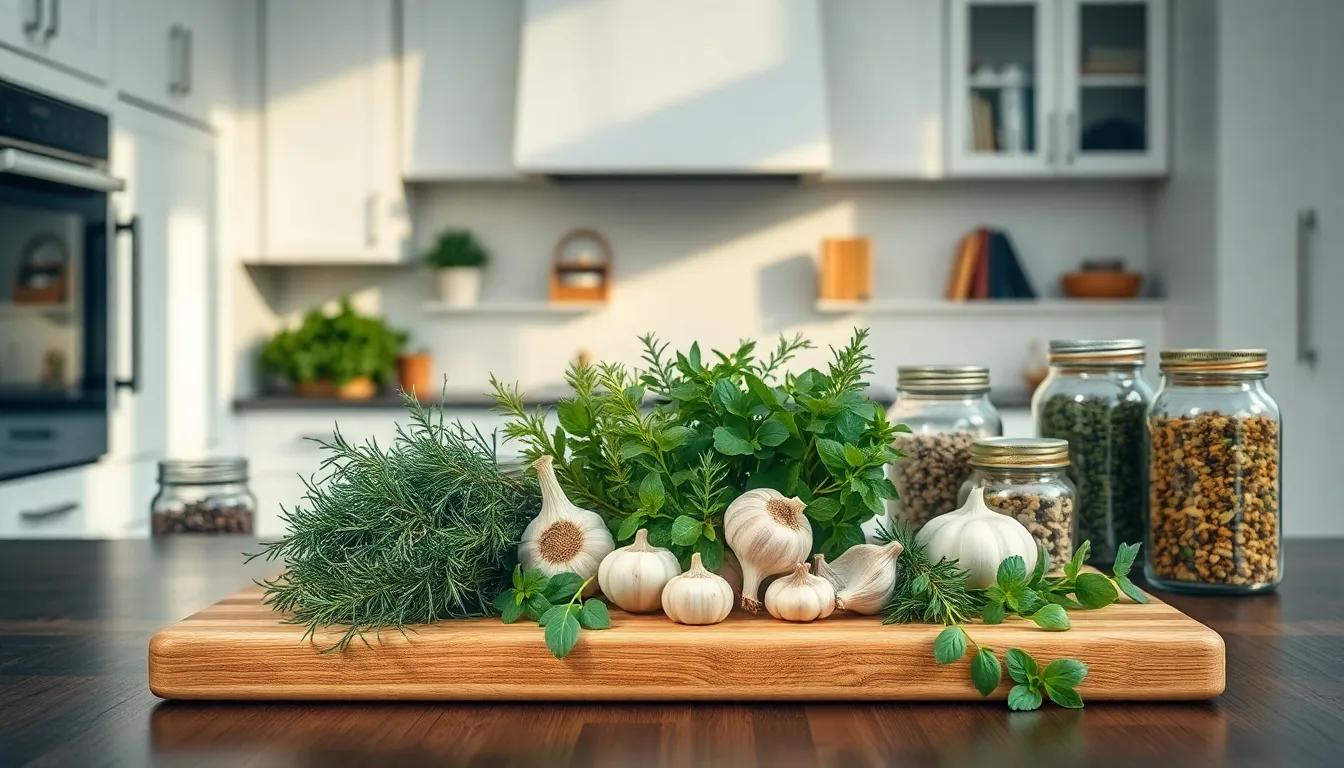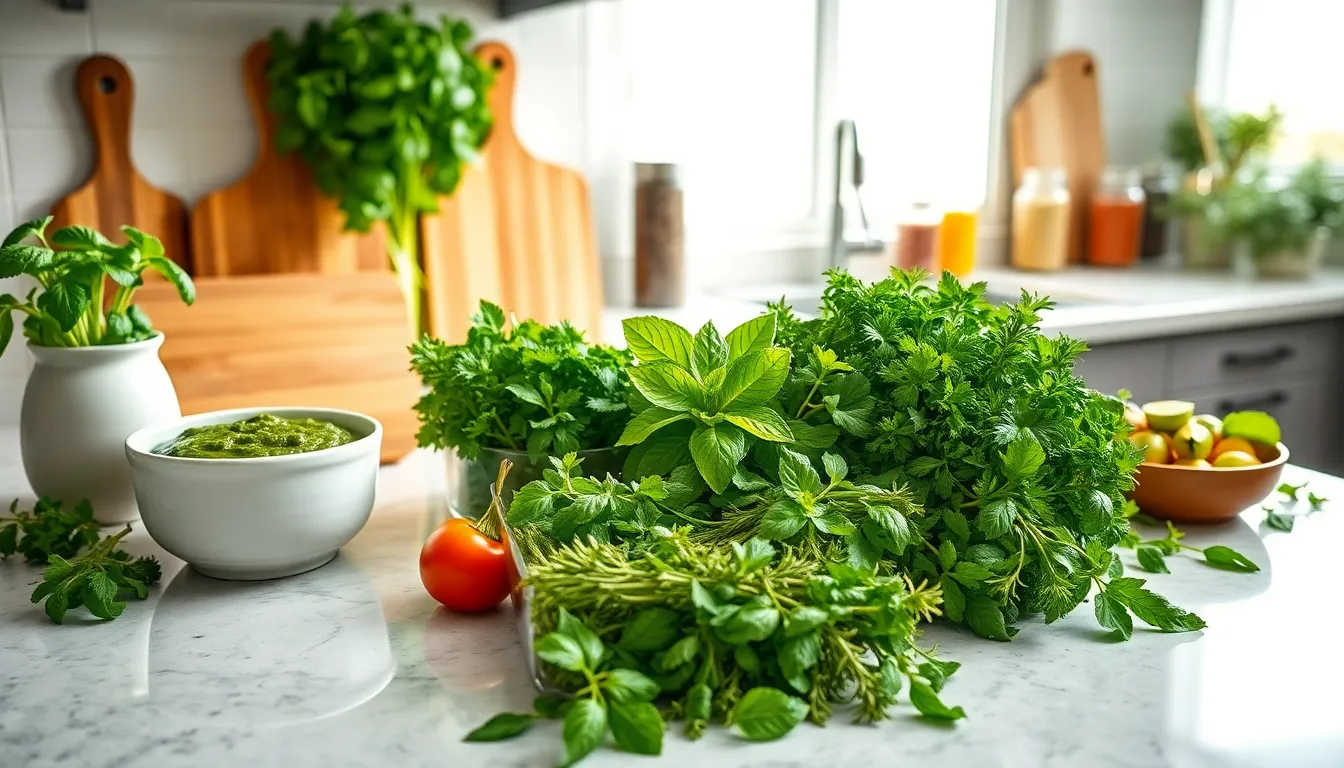Have you ever marveled at how the tiniest of leaves can pack a punch that transforms your meals and boosts your health? Welcome to the spectacular world of remarkable herbs. From adding zest to your dishes to serving as nature’s own medicine cabinet, these little green wonders have been cherished through the ages. In a world that often runs on fast food and ready-made meals, the revival of these humble herbs is like uncovering a treasure chest of flavor and well-being. So buckle up as we embark on an enlightening journey through the history, culinary genius, and incredible health benefits of herbs. It’s not just about sprucing up that chicken dish: it’s a tantalizing jump into what makes these plants so extraordinary.
Remarkable Herbs

Remarkable herbs have been integral to human civilization for thousands of years. Ancient cultures recognized their importance, using them not just for flavor but also for health and rituals. The Egyptians, for instance, employed herbs like thyme and garlic in their mummification process, believing they had protective properties for the afterlife. In the Middle Ages, herbs like rosemary became symbols of remembrance and fidelity, often heralded in weddings. Even though scientific advances, many people still gravitate toward traditional herbal wisdom that has withstood the test of time.
Ever heard of the ancient Greek physician Hippocrates? He’s often regarded as the father of medicine and famously said, “Let food be thy medicine and medicine be thy food.” This ethos shaped medical practices for centuries, steering people toward natural remedies over synthetic solutions. Today, this ideology resonates more than ever as people become increasingly aware of the side effects of pharmaceutical drugs. The journey of herbs from ancient history to modern kitchens showcases their unyielding significance and continued relevance in our fast-paced lives.
Culinary Uses of Remarkable Herbs
When it comes to cooking, remarkable herbs are like the unsung heroes that can elevate any dish from drab to fab. Consider basil, a staple in Mediterranean cuisine. Its aromatic fragrance transforms a simple tomato sauce into a culinary masterpiece. Then there’s cilantro, which divides opinions: to some, it’s refreshing, while others find it tastes like soap. But love it or hate it, there’s no denying cilantro’s ability to add zest to salsas and salads.
Fresh herbs like parsley, dill, and mint can turn a mundane meal into a sophisticated experience. They provide colors and textures and contribute vital nutrients. Tossing a handful of fresh herbs into a salad not only boosts flavor but also enhances nutritional content. Imagine the taste explosion when you sprinkle some fresh oregano over pizza right before serving, pure magic.
Herbs can also be the secret ingredient in marinades, dressings, and even desserts. Who would have thought that rosemary could bring out the flavors in chocolate desserts? It’s true. The culinary versatility of these herbs is boundless, inviting home cooks and chefs alike to experiment fearlessly.
Medicinal Properties of Select Herbs
Remarkable herbs are often considered nature’s pharmacy. Many herbs possess powerful medicinal properties backed by scientific research. Take turmeric, for example. This bright yellow spice is renowned for its anti-inflammatory and antioxidant benefits, making it a staple in traditional Indian medicine. It’s no wonder it’s now trending in wellness circles worldwide.
Then we have ginger, often hailed for easing digestive issues and reducing nausea. Drinking ginger tea can be a cozy remedy for colds, proving that sometimes the simplest ingredients offer the most profound solutions. Lavender, celebrated for its calming effects, has been used in aromatherapy to alleviate stress and improve sleep quality. Just a whiff of this herb can transport someone to a peaceful state of mind.
Echinacea is another herb known for its immune-boosting properties. Many people turn to echinacea during cold and flu season, hoping it might give their immune systems an extra nudge. The world of medicinal herbs is vast and varied, offering countless remedies that integrate seamlessly into daily life.
Herbs for Sustainable Living
In the face of climate change and environmental degradation, turning to herbs can be a step toward sustainable living. Herbs require less water than traditional crops and can be grown in small spaces, making them perfect for urban dwellers with limited gardening options. Imagine a rooftop garden overflowing with rosemary, mint, and basil, beautiful and functional.
Also, herbs can contribute significantly to biodiversity. Many herbs attract beneficial insects, promoting a healthier ecosystem in both gardens and local environments. By cultivating a variety of herbs, gardeners can support local wildlife, particularly pollinators like bees and butterflies.
Incorporating herbs into a diet might also reduce the need for preservatives and artificial flavorings. Fresh herbs can enhance the taste of dishes without relying on chemicals. For instance, swapping out a processed seasoning for fresh thyme or sage not only elevates the meal but keeps it wholesome. Embracing herbs is a delightful way to nurture personal health and the planet.
How to Grow Your Own Remarkable Herbs
Growing your own remarkable herbs is simpler than one might think. Even those who claim to have a black thumb can find success with a little guidance. First, select herbs that suit your climate and space. Basil, chives, and cilantro are excellent choices for beginners. They thrive in various conditions and require minimal effort to flourish.
Next, consider the space you’ll need. Whether it’s a sunny windowsill or a small outdoor patch, herbs do best in bright, direct sunlight. Make sure to use quality soil, as it sets the foundation for healthy growth. Watering should be frequent but moderate, as overwatering is the enemy of herb gardens.
Don’t forget about the importance of harvesting. Regularly trimming your herbs encourages new growth and helps you enjoy their flavors in your cooking. Plus, it ensures you get the freshest ingredients possible right from your home. In turn, gardening can become a rewarding hobby that provides food, relaxation, and a deeper connection to nature.

